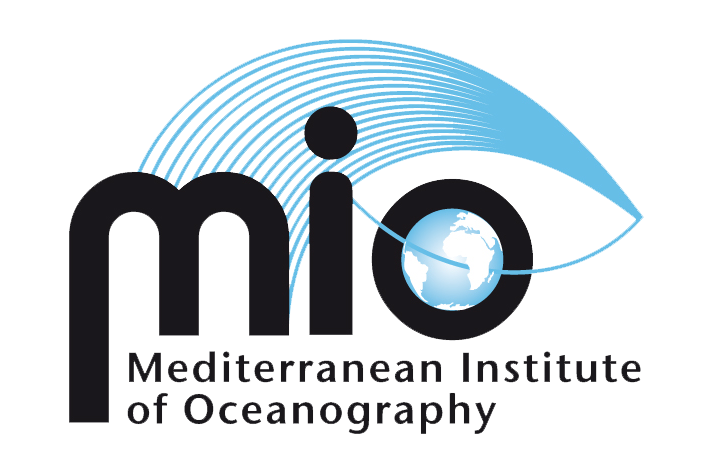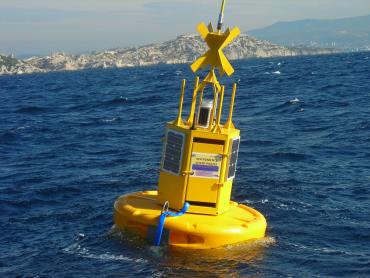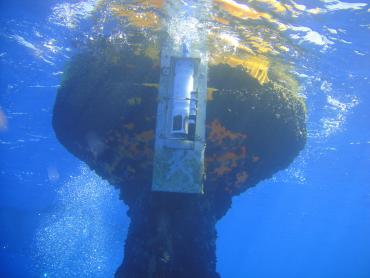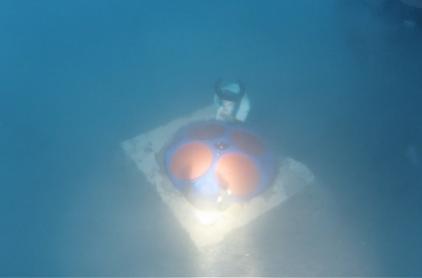Observation activities
Long-term monitoring of marine ecosystems
Contacts : Anthony Bosse, Gérald Gregori and Dominique Lefèvre
In the context of rapidly changing climatic conditions, it is important to expand our knowledge of the temporal and spatial dynamics that characterize the oceans. To do so, only long series of measurements can describe the natural or perturbed evolution of a system with high seasonal and/or interannual variability. These regular observations over long periods of time are increasingly seen as an indispensable support for research.
Indeed, for each natural environment, it is necessary to understand its fundamental functioning, and to predict possible evolutions at different time scales. Time series also expand our understanding of ecological processes, and are an essential tool for improving models of physical, biogeochemical and ecological dynamics in the oceans.
The Mediterranean Institute of Oceanology (MIO), supported by the OSU Institut Pythéas ( in particular through the management of databases, the station ship Astroides and the diving team), is a research laboratory heavily involved in long-term monitoring of marine ecosystems, particularly in the north-western Mediterranean, but also in the South Pacific Ocean. The topics addressed cover all oceanography disciplines, from physics to biology, and thus reflect the cross-disciplinary nature of this laboratory.
These topics concern the anthropogenic impacts on the marine environment, and more specifically the coastal area and the interfaces linking the open sea, the mainland and the atmosphere. Considerable effort in terms of manpower and other resources is devoted to activities whose overall aim is to monitor the marine environment in both coastal and open waters.
The data is collected using standardized protocols/methods and fed into databases managed by the OSU Pytheas IT department, or other national (SEANOE, SISMER, Mistrals-SEDOO, etc.) and international databases, in accordance with the principles of FAIR (Findable, Accessible, Interoperable, Reusable).
Observation data
The data sets are based on observations collected with systems deployed from ships or drifting devices, balloons, aircraft, fixed equipment on land or at sea and systems installed on satellites. These data can also be produced through campaigns at sea.
See our data online :
-
The dataset catalogue managed by OSU Pytheas (metadata)
-
The geo-portal (location of measurement sites)
On-line data visualization from the Bay of Marseille :
National Observation Services (SNO) & other observation systems
Current observation activities are designed to contribute to the certified National Observation Services (SNO), mainly grouped within the Coastal and Coastal Research Infrastructure (IR ILICO):
- SNO SOMLIT : coastal time series over the French coast, in the Bay of Marseille.
- SNO MOOSE : multi-platform integrated ocean observatory of the land-sea continuum in the western Mediterranean (MOOSE-GE campaigns and monthly monitoring at ANTARES, glider endurance line T02 Marseille-Balearic Islands, river and atmospheric deposition monitoring at the Frioul site).
- SNO COAST-HF : high-frequency coastal monitoring (SOLEMIO buoy in Marseille Bay).
- SNO PHYTOBS : Monitoring of micro-phytoplankton in coastal environments.
- EMSO-LO : cabled mooring on the KM3NeT site (ALBATROSS) integrated into the IR EMSO-France and EMSO ERIC (Western-Ligurian Node).
Other observation systems in place (some in the process of being accredited or recognized as being of interest by IR ILICO) :
- JULIO : ADCP mooring on the Gulf of Lion shelf.
- MOISE : Instrumented mooring and biogeochemistry in a New Caledonian lagoon.
- SPOT : Series of campaigns to study phytoplankton in the South-East Pacific.
- HTMNET : Hydrodynamics and suspended matter transport - Water levels and temperatures.
- AEROSOL-TLN : Monitoring of atmospheric deposits in Toulon bay.
- SSL@M : Instrumented laboratory at the Marseille-Endoume marine station.
- MAPIO : The aim of MAP-IO (MARION DUFRESNE ATMOSPHERIC PROGRAM INDIAN OCEAN) is to study atmospheric composition and ocean-atmosphere processes with an impact on regional climate and numerical weather forecasting.
- SOOTSEA : Impact of black carbon in Southeast Asia.
- BiodivInnov : Innovative approaches to monitoring marine biodiversity by combining imaging and genomics.
- SIO-BDM: Monitoring Ocean-Atmosphere Interactions in the Bay of Marseille.




